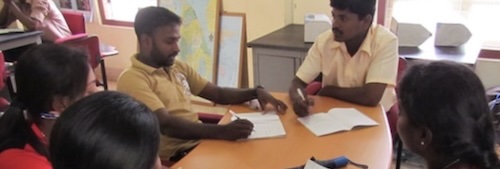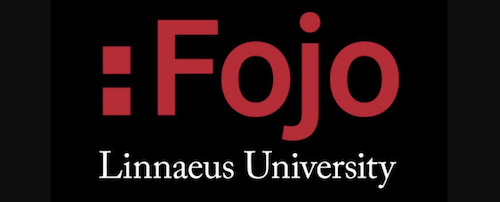 Find out how to make the best use of the training material on Media Helping Media.
Find out how to make the best use of the training material on Media Helping Media.
Tool: News Story Checklist
The follow is a structured checklist tool for journalists to consider in order to ensure they produce strong news stories.
Shoe-leather reporting
Despite the influx of digital information, the foundational skills of "shoe-leather reporting", involving direct contact, investigation, and verification, remain essential for journalists in the modern newsroom.
 Check our Facebook page for regular updates from Media Helping Media.
Check our Facebook page for regular updates from Media Helping Media.
 Media Helping Media provides free journalism and media management training resources.
Media Helping Media provides free journalism and media management training resources.
 The content on Media Helping Media (MHM) is released via Creative Commons BY NC SA 4.0.
The content on Media Helping Media (MHM) is released via Creative Commons BY NC SA 4.0.
 Media Helping Media is proud to be hosted by the Fojo Media Institute.
Media Helping Media is proud to be hosted by the Fojo Media Institute.
The essential role of journalism
Journalism isn’t just reporting, it’s witnessing history, challenging power, amplifying unheard voices, and making sense of a chaotic world.
Climate change glossary
The following is a list of some of the common climate change terms used by scientists, environmental agencies, governments, activists, and journalists.
Accuracy in journalism
A media organisation will be judged on the accuracy and reliability of its journalism, which must be well-sourced, supported by strong evidence, examined and tested, clear and unambiguous. Verified facts must form the basis of all news, not rumour or speculation.
Fairness in journalism
Fairness in journalism means exploring all sides of an issue and reporting the findings accurately.
Unconscious bias and journalism
Bias is a prejudice or favour for or against an individual or group. It is often an inaccurate and unfair judgement. We are all biased. It’s normal, although it is not desirable.
Adopting the ‘big story’ approach
Planning is critically important in the news business. It’s the mark of professionalism and the essence of good coverage. But there are some things you can’t plan.Big stories happen out of the blue. And when they happen you have to spring into action immediately.
Social media in news production
Social media has fundamentally disrupted the media landscape, forcing traditional outlets to confront their operational models and redefine their role in a rapidly evolving information ecosystem.
Building a news team from scratch
Selecting, training and organising a strong news team is a challenge in any circumstances, but doing so in a refugee camp with no resources is an amazing achievement. One editor explains how it was done.
Setting up a media business
A media business is like a table with four legs - the target audience, the editorial proposition, values, and the market.
Social media test for mainstream media
Does your media organisation have a social media strategy. Does it reach out and connect with your audience?
Forward planning for media organisations
This module looks at how media organisations need to plan ahead in order to produce original content that informs the public debate and makes the most efficient use of resources.
Journalistic integrity – scenario
In this scenario a political correspondent working for a broadcaster is asked to speak at an event organised by a political party - but there is a catch.
Interviewing integrity – scenario
In this scenario, an award-winning journalist is offered a top job at national TV station, but soon after starting her new job she discovers corruption in the media house.
Public interest – scenario
This scenario looks at some of the issues that need to be considered when deciding whether a story is in the public interest.
Gap analysis in media training
'Gap analysis' is an essential part of any 'training of trainers' (ToT) programme because it helps identify the specific needs of participants.
Wanted, your media know-how
Have you got any journalism expertise that you are willing to share with others? If so, please get in touch.
International media training
Those invited to help the media overseas need to ensure that the training they offer is continually refreshed in order to stay relevant and useful.